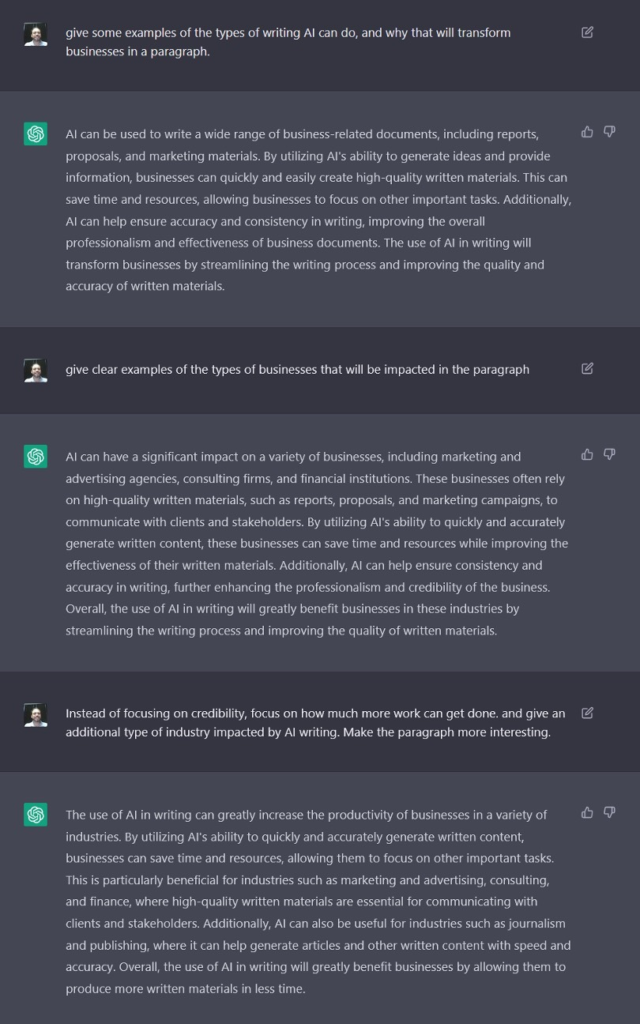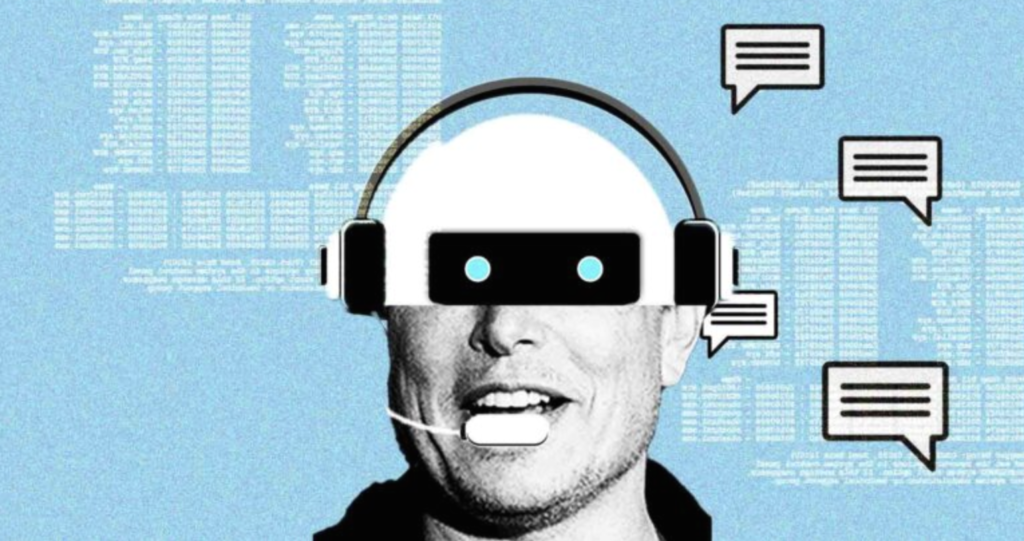You’ve probably heard of ChatGPT. It’s a fancy new artificial intelligence machine that’s been making headlines for writing malware and even qualifying for an engineering job with Google.
Now you might find yourself wondering: What exactly is ChatGPT? What are its limitations and where does it excel? Should we be concerned about the progress its made in such a short time? What does this all mean for the future of artificial intelligence and how do we interact with it?
Read on to find all your answers!
Table of Contents
What is Artificial Intelligence?
Artificial intelligence refers to the ability of machines to perform tasks that would normally require human intelligence, such as learning, problem-solving, and decision-making. The idea of AI has been around since the 1950s, but it wasn’t until the advent of the internet and the development of sophisticated algorithms that it began to truly take off. Today, AI can be broken down into several categories, including:
- Machine learning: This involves using algorithms to analyze data and learn from it, allowing the machine to improve its performance over time.
- Deep learning: A subset of machine learning that involves using artificial neural networks to simulate the way the human brain works.
- Natural language processing (NLP): This involves teaching machines to understand and interpret human language.
- Computer vision: This involves teaching machines to “see” and interpret visual information.

Applications of Artificial Intelligence
AI has a wide range of potential applications, some of which are already being used today. Here are just a few examples:
1. Healthcare
AI is already being used in healthcare in a number of ways, from analyzing medical images to predicting disease outbreaks. Machine learning algorithms can help doctors identify patterns in patient data that may be missed by the human eye, allowing for earlier diagnosis and more effective treatment.
2. Finance
AI is also being used in the finance industry to detect fraud, predict market trends, and automate financial tasks. Algorithms can analyze massive amounts of data to identify patterns and make predictions about future market behavior.
3. Transportation
Self-driving cars are one of the most talked-about applications of AI in transportation. By using sensors and machine learning algorithms, these cars can navigate roads and make decisions in real-time, potentially reducing accidents and increasing efficiency.
4. Customer Service
AI-powered chatbots are becoming increasingly common in customer service, allowing companies to automate basic interactions with customers and freeing up human representatives to handle more complex issues.
An Overview of ChatGPT
At its most basic, ChatGPT is an artificial intelligence (AI) technology that can detect, analyze and respond to human requests. This can be as simple as finding a recipe to something more complicated, like writing code.
The chatbot “talks” to you; it can read and comprehend your input, and provide quick and accurate replies. You can have conversations or ask it questions and get relevant answers. It’s also capable of generating content from scratch, providing intelligent customer service, problem-solving, and much more; all of this suggests that businesses will utilize this kind of technology more and more. Meanwhile, this is also becoming a more common part of our daily lives too. ChatGPT can give you anything from recipes to advice.

Like some other AI tools, ChatGPT could also be used to help monitor your network for threats and self-learn how to better detect and defend against intrusions in the future. As we’ve already seen in the headlines, it can also do the opposite and generate ransomware and other malware.
The Future of Artificial Intelligence
AI technology is being used to automate mundane tasks and improve efficiencies in a variety of industries. With its ability to learn from data and its potential for automation, AI promises to revolutionize the way we work and live.

ChatGPT, and other AI, will continue advancing. As more people input information, its database to self-learn from grows. Ultimately this will help us make better decisions and solve complex problems in our real lives, both personal and professional. We will see more automation integrated into customer service, transportation, business, and so many other sectors. Could we have predicted automated malicious code or cybersecurity tools even five, or ten years ago? Probably not. The future is just as full of possibilities.
We are only beginning to understand the possibilities that AI offers and it’s potential for transforming our lives in the future.
Can AI be used for malicious purposes?
Unfortunately, like any technology, AI can be used for malicious purposes. For example, AI-powered bots can be used to spread misinformation or manipulate public opinion, and facial recognition technology can be used to track individuals without their knowledge or consent. It’s important for developers and policymakers to consider these risks when creating and regulating AI systems.
How will AI impact the job market?
AI has the potential to automate many jobs that are currently done by humans, which could lead to job displacement and economic inequality.
However, it’s also possible that AI will create new job opportunities in fields like data analysis and machine learning. It’s difficult to predict exactly how AI will impact the job market, but it’s important for policymakers and businesses to plan for potential disruptions.
How can we ensure that AI is used ethically?
To ensure that AI is used ethically, it’s important for developers to consider the potential risks and biases of their systems from the outset.
Additionally, policymakers can regulate the development and use of AI to ensure that it is aligned with human values and priorities. It’s also important for individuals and organizations to consider the ethical implications of using AI in their own work.
Conclusion
ChatGPT is only the latest chatbot, the latest artificial intelligence sweeping our headlines. Its capabilities will expand in time; or at least it will spur the invention of newer, faster, smarter tech. It’s far too late to slow the spread of AI, but there is always room for improvement with each new iteration, too.
Who can predict what comes next? Perhaps you, if you’re working on your own smart technology. For most of us, our best bets are to stay aware of what AI exists and what it can do, for good and bad. This is the best way to equip your systems with strong defenses and to understand what cyber threats you’re trying to keep out. It’s much easier to fight when you know what tricks the enemy uses.
Follow T3 Security Blog to keep up to date on the latest threats and security tools out there!

